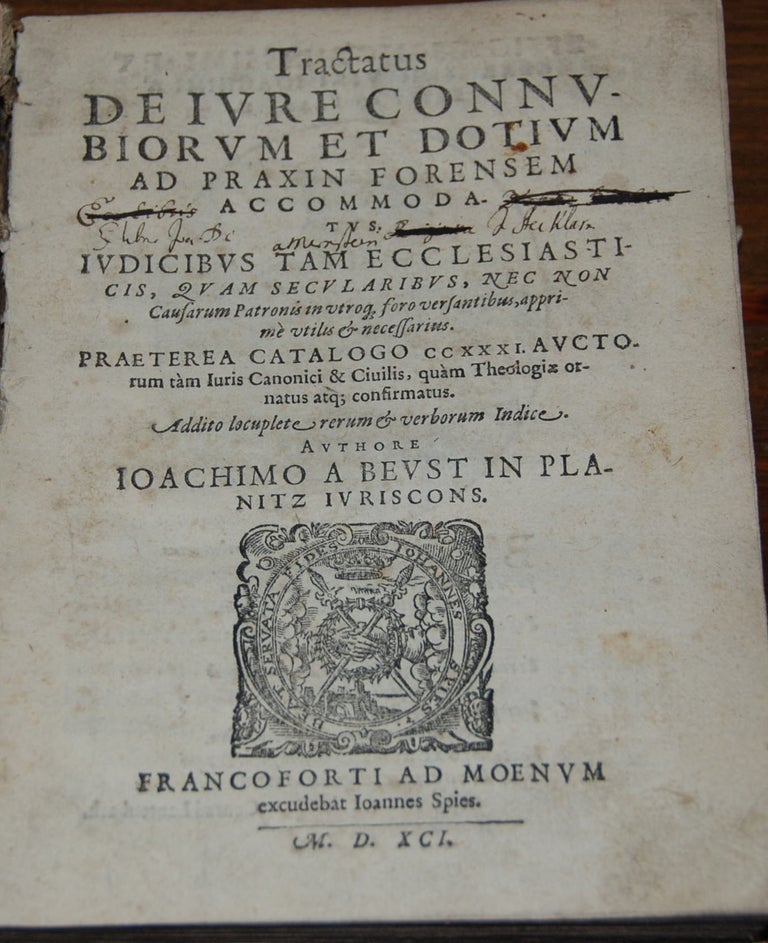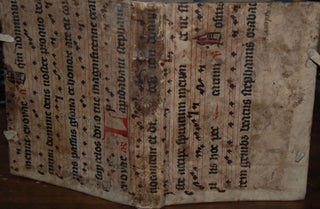TRACTATUS DE IURE CONNUNBIORUM ET DOTIUM AD PRAXIN FORENSEM ACCOMODATUS
Frankfurt: Johannes Spies, 1591. Most Complete Early Edition. 4to, pp. [xiv], 136, [x]. Printed in Roman and Gothic letter. Woodcut printer's device on the title page, Author portrait on the verso of the title page after a painting at the University of Wittenberg. Contemporary MS ex-libris on the title page: "Steiklar (?). Author woodcut arms on third leaf. With a list of authors sources and summary at the beginning and an index at the end. Some age yellowing and foxing. A good copy in rubricated vellum antiphonal leaf C15, remain of ties, hinge loose, title page loose. VD16; Index Aureliensis, IV, 151; BM STC Ger and Berkeley Law Library, later eds.; Allgemeine Deutsche Biographie, Band 2 (1875). Scarce, the OCLC locates only the copy at Harvard. Item #54703
This is a very interesting work on the law relating to all aspects of marriage by Joachim von Beust (1522-1597), lawyer and teacher at Wittemberg. During his studies at Leipzig Von Beust became acquainted with the writings of Luther. His first work on marriage, “Tractatus de sponsalibus et matrimonis ad praxin forensem accomodatus”, was published in Wittenberg in 1582, in which he develops the first legal code for the protestant people of Saxony concerning marriage. Although based on catholic traditions, Von Beust, drastically departs from them by allowing divorce. And in the tradition of Luther, permitting divorce takes marriage from the control of the Church, to that of the State. The second part of the book details the grounds for the legality of divorce, in cases of fatal illness, domestic violence, disputes, impotence, adultery or absence. Von Beust also added a third part on dowry (De Dotibus) in this edition of 1591. In the preface to the third part he explain its necessity “ Dotes sine matrimonijs esse non possint”, without a dowry, marriages are not possible. Marriage at this time was important socially and economically, as a bargain between two families that often involved an exchange of money and properties. Beust explains the implications for each party. Beyond the juridical part, this text is a great piece of social information about conjugal and family life at this time in Germany. How people became engaged, the problems of illegal union, the need to have the consent of parents or guardians, the prohibition of polygamy, sodomy or infidelity, widowhood and inheritance, etc. There are laudatory verses by Conrad Lautenbach and in Greek and in Latin by Christopher Anersort and David Pfeifer. ---.
Price: $4,500.00 save 20% $3,600.00



